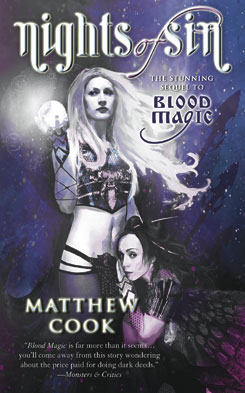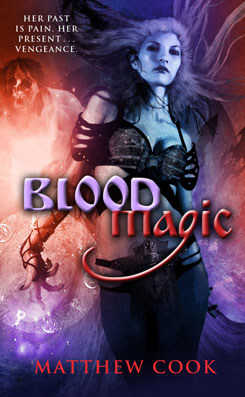
Welcome to another exciting eposide of my ongoing series: The Lettered Curmugeon. Here, you'll find reviews on books, movies, TV shows and games, all told from a writer's perspective. In this installment, I'll be taking a look at a new series, set to debut in May: the contemporary fantasy anthology: Welcome To Bordertown.
1986 was an exciting year for geeks. Movies like Aliens, Big Trouble in Little China, Labyrinth, and Highlander were in the theaters. William Gibson’s Count Zero hit the shelves that year, and Orson Scot Card’s Ender’s Game won the Hugo, while Miller’s The Dark Knight Returns and Moore’s Watchmen changed comic books forever.
It was also a good year for anthologies. 1986 marked the debut of an ambitious “shared world” anthology created by Terri Windling and Mark Allen Arnold: Bordertown.
The original collection was a slender volume: four short stories filled with spell-powered motorcycles and rock-and-roll bands fronted by elven frontmen, set in a city on the edge of our world and the realm of faerie. Both magic and technology blended together in Bordertown, working sporadically, if at all, creating a place where curses turned runaway human boys into werewolves (sort of), and where the red waters of the Mad River, flowing out of faerie, were as addictive as unfulfilled dreams. It was, in many ways, the birthplace of “urban fantasy”, a sub-genre where traditional fairy-tales were updated for a modern audience through the amazing storytelling of Charles de Lint, Terri Windling, Emma Bull, and countless others.
Over the years, I’ve purchased thousands of books, but only a few stand out so strongly that I remember exactly where I was when I bought them. Bordertown is one such volume, one of the rare few. To say the anthology and the ones that followed (two other short story collections and a handful of novels) were influential on my own writing is an understatement. To say that I was excited when I learned that the Bordertown series was being resurrected for a modern audience equally so.
At 2010’s World Fantasy Convention, I was handed a copy of Welcome To Bordertown, the latest collection by the series’ current editors Ellen Kushner and Holly Black. It’s a massive collection: twelve new short stories from accomplished authors Cory Doctorow, Emma Bull, Will Shetterly, Tim Pratt, and Charles de Lint, as well as from relative newcomers such as Annette Curtis Klause, Janni Lee Simner, Alaya Dawn Johnson, and Nalo Hopkinson. The volume also includes poems by Neil Gaiman, Patricia A. McKillip, Delia Sherman, Jane Yolen, as well as a short, illustrated comic by Sara Ryan & Dylan Meconis. But does this latest incarnation of the beloved franchise not only capture the “where magic meets rock-and-roll” wonder of the original series (hey, the 80’s were a long time ago) while adding something new and fresh for the current generation of urban fantasy readers?
I’m happy to report that it does. In spades.
In this latest collection, Black and Kushner have resurrected the series, updating the setting and providing a fertile playground for a new generation of writers, all while preserving much of the nostalgic feelings of old. It’s a good trick, accomplished via a clever explanation of the city’s disappearance from the world we know. During this period, Bordertown skipped across time, like a stone tossed on a still pond, re-emerging over a decade later, a period its inhabitants experienced not as thirteen years, but as thirteen days. For that time, the roads leading back to the human world were closed.
Once re-opened, a new crop of miscreants and runaways find their way to the City Beside The Border. These misplaced dreamers, however, are different than the ones who came before: wired teens armed not with guitars, but with cell phones and Facebook feeds; girls with daydreams of darkly romantic vampires and smoldering werewolves; entrepreneurial network geeks driven by visions of sending data packets across the forbidden border into faerie.
No story uses the “lost in time” mechanism better than Alaya Dawn Johnson’s “A Prince of Thirteen Days”. It’s a poignant coming-of-age tale, populated by haunted statues, a wise and kindly Grandmother, and a family torn apart by space and time. In Johnson’s tale, star-crossed lovers pass messages across impossible borders, using art as their medium, leading to a resolution that, for all its inevitability, still manages to set its melancholy hook.
Other tales, such as Nalo Hopkinson’s “Ours Is The Prettiest”, and Cory Doctorow’s “Shannon’s Law”, take the series in fresh, thoroughly unexpected, directions. Hopkin’s story adds a refreshing dose of multiculturalism, drawing inspiration not from the traditional European faerie story, but rather the dark magic of New Orleans voodoo. What emerges is a sometimes confusing yet oddly memorable tale, one that lingers on the mind, spicy and sweet, like the taste of etouffee long after the last page is turned. In contrast, Cory Doctorow offers up a tale that could have come out of Silicon Valley, if it had been overrun by myth, where a visionary entrepreneur seeks a novel approach to circumventing the impenetrable border into faerie through high technology. It’s a story only Doctorow could have given us, full of inside jokes about web culture and technology. His progatonists are likable, if unlikely, heroes, wrapped in a narrative that seamlessly blends the wonder of our current-day achievements with a healthy respect for the traditional rules of the fairy tale.
Fans of the original series will be pleased by stories such as Emma Bull’s “Incunabulum”, Holly Black and Cassandra Clare’s “The Rowan Gentleman”, and Will Shetterly’s “The Sages of Elsewhere.” All three are classic Bordertown through-and-through, clear nods to what came before, harkening back to the glory days of urban fantasy. All are fun reads, but it’s Shetterly’s “Sages” that’s the stand-out, primarily due to the return of Wolfboy, one of my all-time favorite B’town characters. “Incunabulum” and “Rowan Gentleman” also deliver memorable moments, usually through the interaction of original characters and archetypes with the new-breed of Bordertown runaways. It’s culture-clash-as-metaphor, applied with artful skill by Bull, Black and Clare, offered up to the reader’s continued delight.
Alongside the collection’s stories are poems and song lyrics, written by past Bordertown alums and leading voices in the fantasy genre. The editors have stated that it is their desire for the Bordertown community to take these words and set them to their own music, creating new and original works. How this will work is still up in the air, however it is my understanding that space will be provided on the new Bordertown website (http://bordertownseries.com/) for these new creations, a move that promises to leverage the power of social media for the series’ newest fans.
That said, as poems the works spoke less to me than the short stories, despite their strong imagery and varied styles. Maybe when set to music they’ll truly come alive. I certainly can’t wait to hear what musicians will do with such strong and diverse source material.
Reading this latest Bordertown collection, I couldn’t help but wonder what kind of readers the editors hoped to target. Aging fantasy fans like me, who think “de Lint and Bull”, not “Meyers and Hamilton”, when they hear the words “urban fantasy”? Teens and YA readers who came up on tales of Jacob, and Edward, and Anita Blake? The answer, of course, is both, a tricky proposition, but one that Kushner and Black manage, somehow, to pull off. Reading Welcome to Bordertown, I couldn’t help but wonder what’s next… what other stories might spring from the minds of writers established and new, inspired by the fruit of their dedication and hard work.
Personally, I can’t wait.


